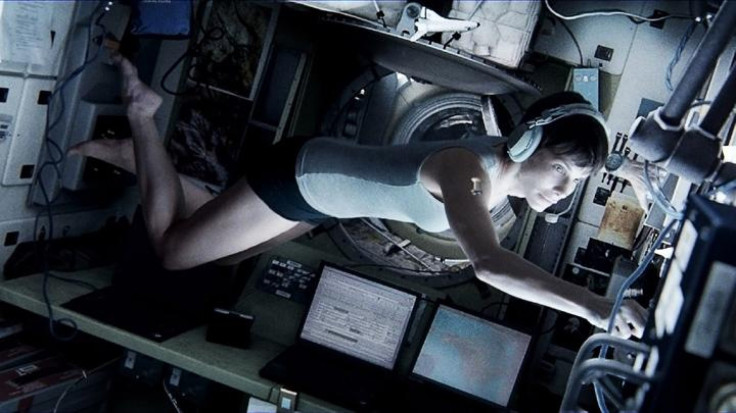'Gravity' Hopes To Pull Chinese Audience With Pro-China Plot Line

The new science-fiction space thriller "Gravity" has moviegoers buzzing after opening this past weekend and earning a record-breaking $55.6 million at the U.S. box office, the top October opening in cinema history. While success in the American market is important, the space drama also seems to have Chinese viewers in mind.
The movie’s release in Chinese theaters has not been confirmed yet, but the movie does stand a good chance against China’s notoriously difficult movie approval and censoring system. Hollywood films that hope to open in Chinese theaters go through the country’s often ruthless media censorship bureau, the State Administration of Radio, Film and Television. While "Gravity" wasn’t a Chinese co-produced film, like some other blockbusters, it has done a decent job of appeasing the Chinese audience. [SPOILERS AHEAD]
In the film, China comes to the rescue of the main character, Ryan Stone, played by Academy Award-winning Sandra Bullock, allowing her to find refuge in its state-of-the art space station. In reality, China’s only space station to date is the Tiangong-1 (which means Heavenly Palace), launched in 2011, and hardly the multi-module facility where Bullock's character seeks shelter in the movie. Finally, shuttling her way back to safety on Earth, Bullock finds herself a spot on a -- where else, but a Chinese space capsule? The movie does take a jab at China’s notorious counterfeiting of technology and design, when Bullock’s character questions her ability to operate a Chinese-language escape pod. It turns out it is actually a copy of the Russian capsule Soyuz, on which she was trained. Nevertheless, the upgrade on China’s nationally revered space program and China-positive plot line is likely to impress officials previewing the movie.
While the possibility of attracting China’s potential 1.3 billion people as viewers has shaken up Hollywood, there was a time when the country was considered public enemy No. 1. In the past, Cold War-era thinking dominated the West, where China and the rest of the Communist states were America’s biggest threats. But as China’s growth and development has shifted its economy and social values, the U.S. and China have found themselves more linked than ever. Just as businesses began catering to the Chinese, so have Hollywood films.
The reboot of action flick "Red Dawn" was an example of how China has taken a step back as Hollywood’s villain. The plot of the remake of the original film from 1984 painted China as the movie villain, leading an American invasion with the help of its North Korean allies. However, upon the realization that the Chinese are a lucrative market that shouldn’t be alienated, and North Koreans are not, China’s involvement was scrapped altogether.
Another film, "World War Z," the Brad Pitt-led apocalypse summer blockbuster, went through a similar realization. Executives of the Hollywood studio producing the film decided to re-edit a plot point which points to China as ground zero for a disease outbreak that causes a zombie apocalypse.
Whether it’s writing in parts for Chinese actors ("Iron Man 3" added parts for Chinese actress Fan Bingbing for its special China release), or setting scenes in famous Chinese cities, Hollywood filmmakers are showing China that they want a piece of the country’s growing market.
© Copyright IBTimes 2024. All rights reserved.












